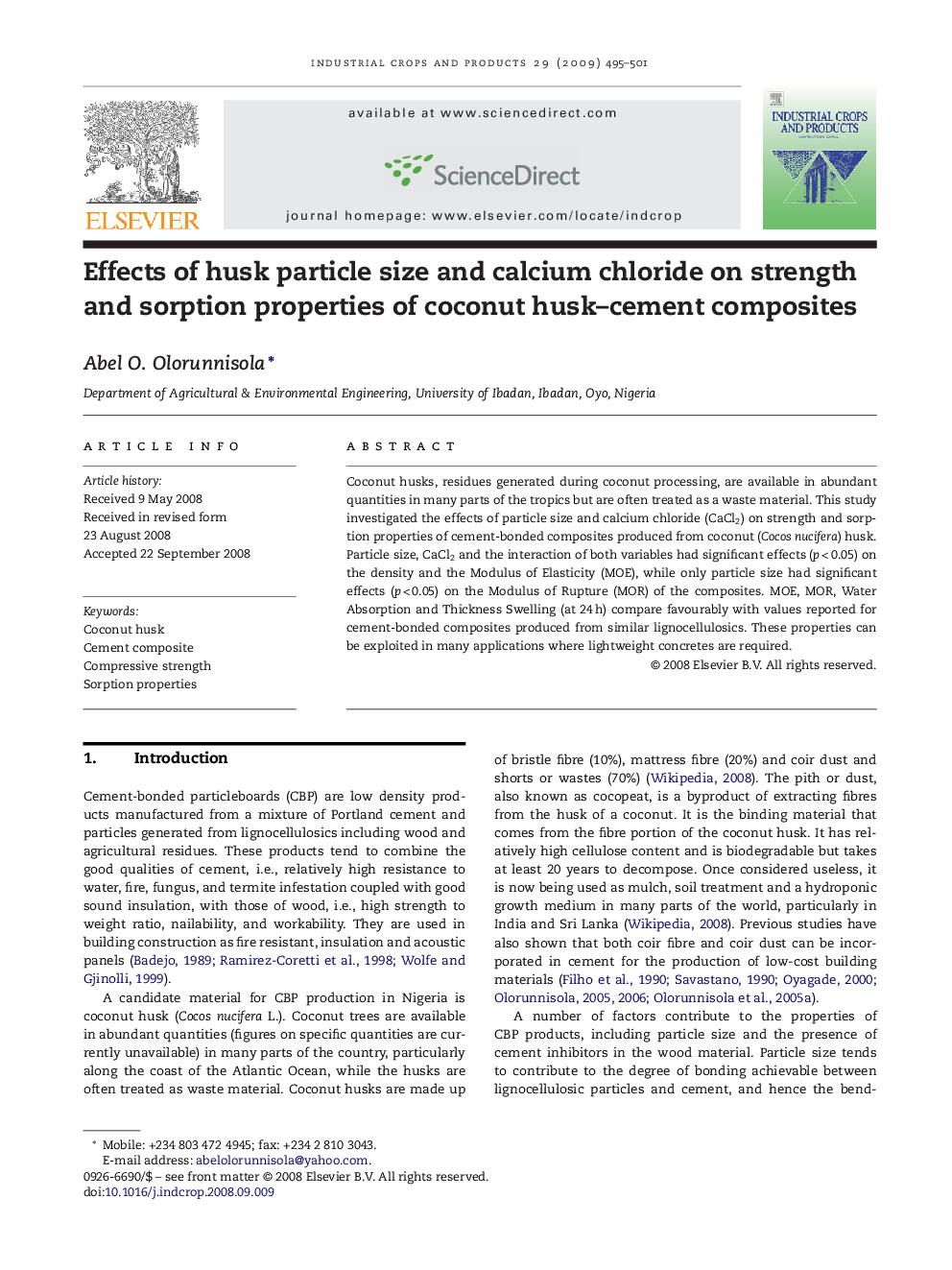| Article ID | Journal | Published Year | Pages | File Type |
|---|---|---|---|---|
| 4514983 | Industrial Crops and Products | 2009 | 7 Pages |
Coconut husks, residues generated during coconut processing, are available in abundant quantities in many parts of the tropics but are often treated as a waste material. This study investigated the effects of particle size and calcium chloride (CaCl2) on strength and sorption properties of cement-bonded composites produced from coconut (Cocos nucifera) husk. Particle size, CaCl2 and the interaction of both variables had significant effects (p < 0.05) on the density and the Modulus of Elasticity (MOE), while only particle size had significant effects (p < 0.05) on the Modulus of Rupture (MOR) of the composites. MOE, MOR, Water Absorption and Thickness Swelling (at 24 h) compare favourably with values reported for cement-bonded composites produced from similar lignocellulosics. These properties can be exploited in many applications where lightweight concretes are required.
